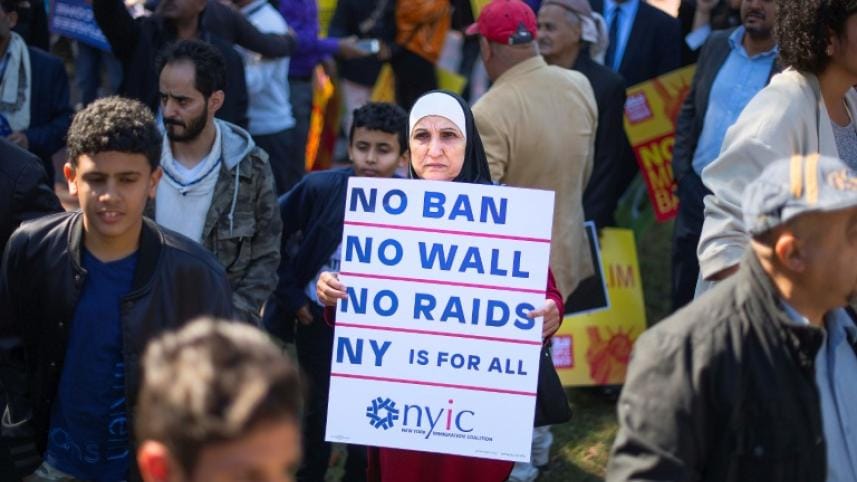2nd US judge orders freeze on Trump travel ban

A second judge ordered a freeze on President Donald Trump's newest travel ban order on Wednesday, saying it was essentially targeted at Muslims in violation of the US Constitution.
Maryland federal judge Theodore Chuang said the ban affecting travellers from six majority-Muslim countries and North Korea, as well as many officials from Venezuela, essentially had not changed from the first two versions, which were shot down in lower courts as discriminating against a single religion.
He pointed out, as in earlier rulings, that Trump had repeatedly promised a ban on Muslims coming into the country during last year's presidential election.
Chuang was the second judge this week to order a block on the open-ended ban, issued in a White House executive order in September and which was to come in effect on Wednesday.
Hundreds of protesters gathered in front of the White House Wednesday, chanting "no Muslim ban," and "no ban, no wall, freedom for all" -- referencing Trump's plans to build a wall on the Mexican border. A march to the Trump International Hotel, a few blocks away, was also planned.
Yemeni Fathi al-Huthaifi, 41, told AFP his wife is stranded in Saudi Arabia as a result of the ban.
"She's waiting for her visa but the travel ban makes it delayed, delayed," explained Huthaifi, who has five children, all with US citizenship.
"When we allow one group to get banned, then we allow other groups to get banned," civil rights activist Linda Sarsour said, adding, "This is part of a standing campaign of this administration, a white supremacist agenda."
Isra Chaker, a refugee camp adviser for Oxfam America, branded the ban "an affront to the American tradition."
"This decision impacts life of real people... no one (chooses) to become a refugee," she said.
On Tuesday, Hawaii federal district judge Derrick Watson also objected to the ban, saying it illegally discriminated against the entire populations of six countries -- Iran, Libya, Somalia, Sudan, Syria and Yemen -- and would not, as it claimed, add to US national security.
Trump has battled with the courts since the first version of the ban, and in June finally gained Supreme Court approval to implement an amended second version for 90 days, which ended last month.
On Tuesday the White House said it would fight the newest ban by Watson, pointing to yet another likely fight in the Supreme Court.



 For all latest news, follow The Daily Star's Google News channel.
For all latest news, follow The Daily Star's Google News channel.
Comments